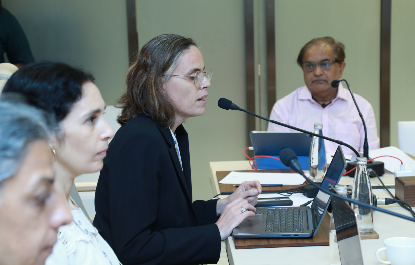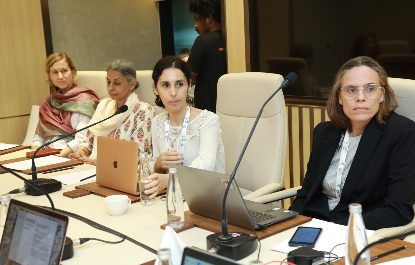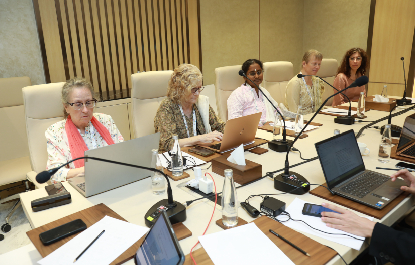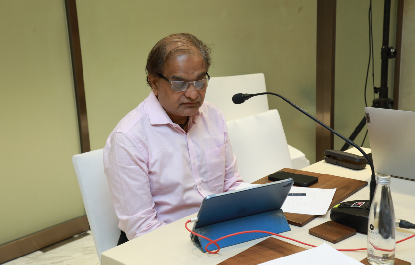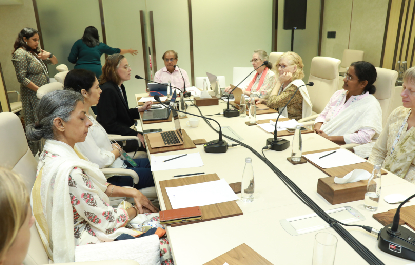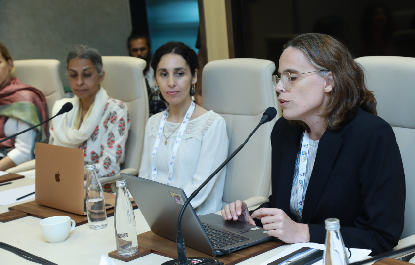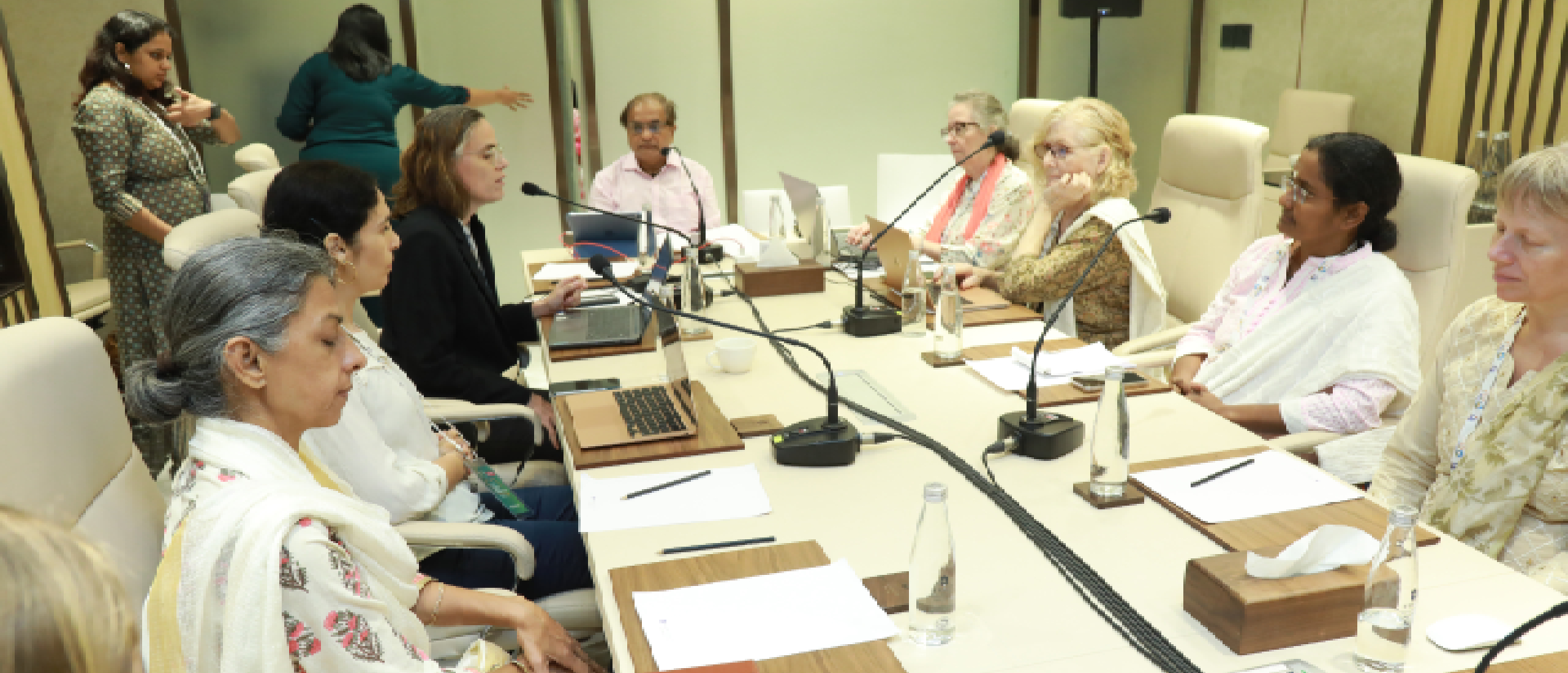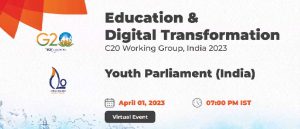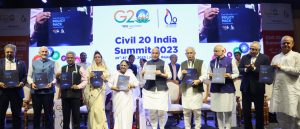A panel discussion on Education for Building Global and Compassionate Citizens moderated by Dr. Balakrishnan Shankar, Dean, School of Engineering, Amrita Vishwa Vidyapeetham was organized as part of the Civil 20 Education and Digital Transformation Summit on May 20.
The esteemed panelists include Ms. Andrea Dabrowski, Germany; Ms. Emilie Barrucand, Founder of NGO Wayanga for Indigenous People, France; Ms. Grace Antrobus, International Coordinator, Green Friends Initiative, USA; Ms. Mary Gordon, Founder, President, Roots of Empathy, Canada; Ms. Rachel Korbee, Embracing the World, Holland; and Ms. Bhavani M, Yoga and Meditation instructor, Mata Amritanandamayi Math.
Dr. Shankar emphasized the importance of education in building global and compassionate citizens. He emphasised the need to nurture empathy and understanding across diverse perspectives, foster a harmonious society, and address global challenges.
Ms. Grace Antrobus highlighted the positive impact of nature care on mental well-being while stressing on the importance of connecting with nature. Drawing on her own experience, she stated that engaging children significantly improved their self-esteem, instilling valuable principles, and qualities.
Ms. Rachel Korbee emphasized the importance of spirituality in education centered on the Vasudeva Kutumbakam principle—the ultimate goal of education is instilling a heart-centred culture based on spiritual values. Understanding oneness and fostering unity are crucial for a holistic and compassionate approach to education. She suggested that integrating spirituality into the educational framework fosters empathy, cooperation, and harmony among individuals and communities worldwide.
Ms. Andrea Dabrowski discussed the importance of children and youth learning to navigate through life’s challenges and be open to new perspectives. Emphasizing the importance of an individual’s attitude, she said it is necessary to recognize strengths and seek opportunities to create a positive impact. It helps cultivate self-confidence and helps overcome limitations.
Ms. Mary Gordon advocates emotional literacy in education, focusing on its importance alongside digital and financial literacy. She believes in establishing deeper connections with students and recommends increased funding for teacher training programs. Additionally, she endorses and suggests adopting ethics of care, which promotes emotional literacy.
Ms. Bhavani M shares her experience teaching yoga and meditation in prisons. These techniques enhance mental clarity, focus, and personal empowerment by fostering peace, self-awareness, and emotional well-being. Prison inmates find purpose and direction through yoga and meditation, overcoming trauma and embracing a positive, mindful approach. These techniques demonstrate transformative power, promoting self-discovery, healing, and personal development for countless prisoners, enabling inner peace and positive change.
Some of the key takeaways from the panel discussion include integrating values into education to foster empathy, compassion, and responsibility. It promotes social and emotional development, resilience, and ethical character. Prioritizing early childhood development ensures well-being and positive outcomes.
